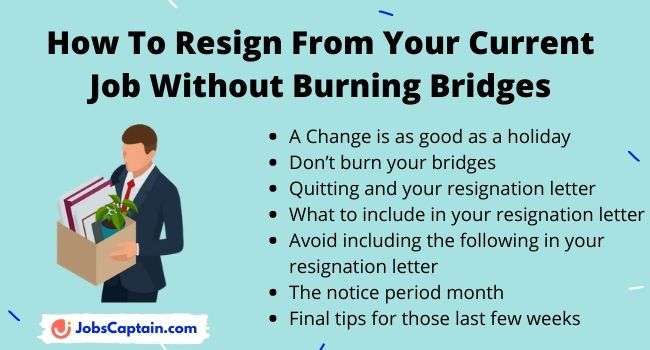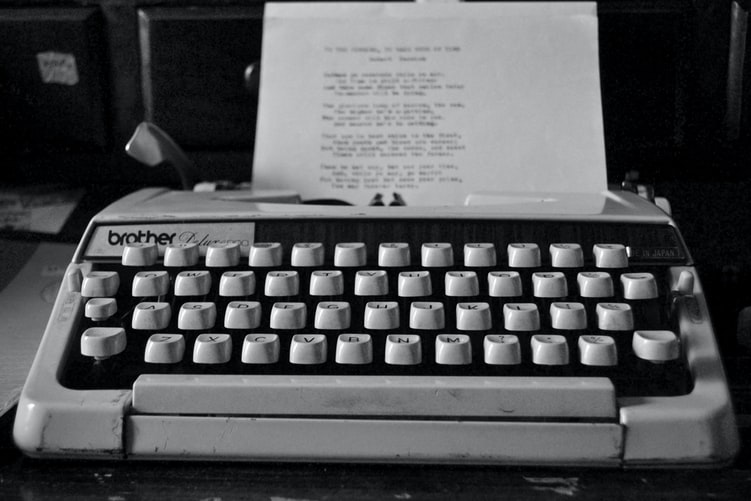
Congratulations! You’ve done it – you’ve finally made the decision after weeks – if not months – of weighing out the pros and cons, preparing, researching, saving, speaking to your family, finding another job, or deciding to work for yourself.
You are now ready to take that final step and make it official – the time to face the music, and hand in your resignation letter.
What is it about quitting or leaving a current job that we find so overwhelming, that causes our hands to sweat, causes us to lie awake at night and generally just makes us so anxious?
Could it be that we are expecting to get a few nasty comments after we’ve handed in that letter, or the fact that we might be deliberately swamped with work in our notice period month?
What about the fact that you might be treated differently by your boss or your co-workers?
Or, could it be that you simply love your job so much and the people you work with, that they’ve become like a second family to you and you are dreading your last day at work – a day filled with tears and well-wishes, when you have to say a final goodbye?
There are many reasons why we dread taking that final step.
Sometimes it may feel like it’s much easier to just stay in the comfort zone at our current job and do the job that we know so well, while working alongside people that we’re familiar with.
If you move over to a new job, it means that…
- You will need to learn everything from scratch and start from the bottom and work your way up. (For some, this might be an appealing challenge).
- You’ll be labeled as the “new girl or guy” until the next new person starts.
- You’ll have to meet and work together with new colleagues. This means new personalities, and leaving behind the work friends that you’ve made.
- You’ll need to get to know your boss. No, not crossing any lines – but you’ll need to know how they take their coffee, gauge their moods and when the best time is to approach them on important matters, etc.
- Driving to work or taking public transport is along a different route that you’re probably not familiar with.
A Change is as good as a holiday…
Have you ever heard that saying? I hear it all the time and it’s music to my ears. To some, it might not be – but to a lot of people changing a job, or leaving one is a way of moving up in life and discovering another part of yourself.
It’s a challenge and it takes a lot of courage to decide to leave your job, whatever the reasons may be.
Changing jobs is starting fresh, starting from the beginning. You decide to take what you’ve learnt in your last or previous jobs with you and use it in the new job, but mostly you are giving yourself permission to let go and to open your mind to taking in new information, to learning and growing, and and to increase your skills.
When we go on holiday or plan for one, we feel excited and eager. We make lists of things we’re going to do while we’re away, what we need to pack, and we say goodbye to family and friends.
We do much the same when we change or leave jobs.
We make a list or set goals of what we want to achieve – we hope to move up in the company, or start earning a profit if self employment is our chosen profession, we plan ahead to see what coffee shops are in the area for lunch or what new travel route we need to take, and we say goodbye to fellow colleagues.
Starting a new job or career is an adventure, and it’s exciting!
Don’t burn your bridges…
Depending on your company policy or what is stated in your employment contract, you will need to give the right amount of notice before your last day.
Maybe you can’t wait to leave your job because it’s so stressful and the people you work with or your boss are awful or unfair, and you just want out.
I had a similar experience five years ago. After just under a year in my job, I decided to leave as I’d received a job offer at a company with less stress, that was closer to home.
I resigned just under my contract notice period and not really thinking about the consequences or about the people I’d left behind to pick up my work load until they found a replacement.
Funny how life turns out. I didn’t leave on a good note with my boss back then, but as life would have it during those few years away I’d realized that the grass wasn’t so green on the other side.
One day while browsing the job section of the newspaper, I happened to see a job advertisement for my old position at the company. I was in two minds about it when a Recruitment agency approached me and persuaded me to apply for the job.
With nothing to lose, and having heard from colleagues at the company whom I still kept in contact with that things had drastically changed for the better, I went for the interview and got the job.
My boss was delighted to have me back, and the company had really grown from what I knew of it back then.
My point is, don’t burn your bridges when you leave. I was lucky – but, you never know when you might cross paths with your former boss or colleagues, or if you were like me – somehow find your way back to the same company!
Quitting and your resignation letter
Your resignation should be professional and simple. It can be formal or informal depending on the company you work for, but I would recommend keeping it as professional and to the point as possible.
The best way to resign is to speak to your Manager directly. Tell them that you’ve got something you’d like to discuss with them, and need a few minutes of their time when they’re available.
After you’ve had the meeting, you need to hand in your physical letter of resignation to either your Manager or your company’s HR department to be kept on record and filed in your personnel file.
You can always send a more personal e-mail to your Manager afterwards, thanking them for their guidance, etc – especially if you have formed a good relationship with them.
Best Ways to Deal with Your Professional Jealousy
What to include in your resignation letter:
- The date that you are resigning
- The company’s physical address
- Addressed to your direct Manager
- Your notice period
- When your last day will be
- Thanking the company or your Manager for the opportunities you have been provided with Offering to assist with closing up all your current projects or assignments, as well as to train your new replacement should they be employed during your notice period month
- Wishing the company success for the future
- Your signature
Avoid including the following in your resignation letter:
- A long explanation of why you are leaving. Keep it simple. You can always discuss this with the HR department or in your exit interview
- Anything negative about your boss, colleagues or your work during the time period of your employment
- Slang or inappropriate language
- Too many details about your future plans or new job
The notice period month…
Let’s be honest, in most companies, employers will try and give you as much work as you can handle in order to finish your current projects, and then still try and pile new work on top of that as well.
Don’t get stressed out – remember, you’re leaving and they’re just trying to tie up loose ends.
Just do what you can do at your current work pace that you’ve always done and try and complete as much as you can, but don’t work yourself into a panic over extra work that is piled on top.
At the same time – don’t slack off. Now is not the time to start putting in less effort.
No matter how long you’ve been with the company, you will be remembered by your attitude and your work during your notice period.
If you’re leaving and they are unable to find a replacement for your position in time for you to train, make sure that you leave detailed summaries of each task of your job.
If your replacement starts during your notice period month, try and let them do as much as possible by themselves until they ask for help. The quickest way to learn is being “thrown in at the deep end” and having to swim.
They’re not going to learn as much if you’re doing everything with them sitting next to you, and you’re simply showing them what you’re doing. Rather have them answer phones, and start doing your job as soon as possible.
You’ll still be right beside them should they get stuck, feel uncertain or have a question.
On your last day, if the company doesn’t have a tradition to throw a going away party, bring a cake or pie to work to celebrate your last day. After all, it’s a milestone for you – you have reason to celebrate your new career, but you’ve also had some good people to work with and you want to share this with them.
Final tips for those last few weeks
Don’t take any leave – sick (unless you really are bed-ridden) or annual leave. There is no time, and it’s not really professional to do this in your final month.
Resist the urge to tell your boss (or other colleagues) exactly what you think of them before walking out the door. Remember my example about burning bridges? You just never know.
Try and stay in touch. Everyone always says they’ll pop in to visit, or that they’ll stay in touch but few rarely do this.
The ball is in your court to check in every now and then with old colleagues, if this is something that you want to do.
Thank you for reading article on “How To Resign From Your Current Job Without Burning Bridges”.
Have you quit your job before, what was your resignation experience like?




Thanks for sharing such a good post on job topic.